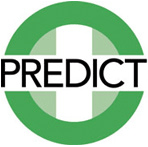2023 has been a great year as we emerged from the pandemic and moved ahead with our research with renewed enthusiasm!
It was the fourth year of our current 2020-2024 NHMRC Centre for Research Excellence (CRE) collaboration. With the end in sight for this grant we submitted a proposal for another CRE grant and were delighted to be successful on the first pass. The new CRE grant will commence in 2024 – 2028 and will support a new program of emergency research in the years to come.
Please join us to reflect on these and other outstanding achievements:
- PREDICT now has 221 members – in the past year we welcomed 34 new members.
- 58 hospitals across Australia and New Zealand have been actively involved in PREDICT research!
- Fifty-three clinical research staff from 23 sites across Australia, attended training for the CHOICE UTI, Mental Health Observational, FEBCON, SPASMS and Asthma prospective studies. This event was held at the Murdoch Children’s Research Institute in Melbourne on 24th and 25th July 2023.
- Four members of the PREDICT executive (Simon Craig, Stuart Dalziel, Elliot Long and Franz Babl) were invited to the EMCON2023 conference for the Society of Emergency Medicine in India in Hyderabad, where they ran a one-day workshop aiming to support the beginning of a multicentre PEM research network in India. This was well-received, and we plan to continue the collaboration with another visit in the first half of 2024.
- PREDICT has continued working actively with consumers in our research. Our mental health consumer group recruited for “The Kids are not Okay” program of research has been actively involved in the development and fine tuning of the Mental Health Delphi project, the PEACHY-O and M studies, and the Prospective Observational study.
We have commenced a Head injury/Concussion Co-design project that involves parents, youths and clinicians working in partnership to develop discharge materials for children with mild head injury/concussion. Lots of valuable insight has been gained to date and draft materials recruited. Final testing of the co-designed resources for ED will take place in early 2024.
Other consumer groups have been working with research teams to develop the FEBCon study, and to inform a number of grant applications (on topics including steroids in pre-school wheeze, recognition of clinical deterioration, asthma, and pain/distress associated with nasogastric tube insertion). We are currently asking consumers about priorities for future PEM emergency research.
- This year we have had 3 successful grants to the value of $2.8M.
- We continue our work on translating best practice in bronchiolitis care. We have published 3 studies this year relating to translation of the Bronchiolitis Guideline recommendations. Work is well underway to update the Australasian Bronchiolitis Guideline from 2016. Teams are currently reviewing new evidence and the finalised guideline will be ready in 2024.
- The PEAChY-O study, the RCT to determine the most effective oral sedation for children presenting with acute severe behavioural disturbance, completed enrolment 12 months early (n=348)! Kids THRIVE – the RCT on high flow for intubation has completed enrolment (n=961). SENTINEL (observational study to collect data characterising sepsis) study is now drawing to a close (n=>7,000). An amazing effort from all teams involved.
- We continue to undertake work collaboratively with the international PERN Pediatric Emergency Research Network) group on the PERN Asthma study (a global multicenter, retrospective Study). With PERC we continue to recruit in the BIPED study (Dexamethasone and Adrenaline for bronchiolitis) and our other international studies include the PROMPT Bolus Study (with PECARN (US) and PERC (Canada)).
- Currently, a significant number of large multicentre studies are ongoing in Australia and New Zealand, while others also involve international sites. These include SONIC (Study Of Neck Injury imaging in Children) also involving Singapore; CHOICE UTI (an RCT comparing a single IV dose of antibiotics to 3 days of IV antibiotics in children with complicated UTI); PEAChY-M (RCT comparing droperidol and olanzapine for children with behavioural disturbance requiring IM sedation; PROMPT Bolus (an RCT comparing balanced vs normal saline fluid bolus for resuscitation in children with suspected septic shock); SENTINEL (a prospective observational study to collect data characterising sepsis) and the Australian and New Zealand ED Airway Registry (ANZEDAR).
- New studies that commenced recruiting this year were: the SPASMS project (on assessment of abdominal pain) which has commenced recruiting in WA with other sites to join soon; The Asthma prospective study “CASPAR” and the MH Prospective study are both about to commence. FEBCon will commence early next year along with PASSPORT and SENTINEL International.
- Our two committed teams undertaking Cochrane reviews continue to progress work on:
“Triage tools for detecting cervical spine injury in paediatric trauma patients”
“Parenteral medication for the management of acute severe behavioural disturbance (ASBD) in the emergency department.” - Data analysis is complete and papers are underway for the Western Australia Bronchiolitis Knowledge Translation Adaptability study; PERN pneumonia; BellPIC and the Mental Health Delphi study.
- The PREDICT Executive reviewed and endorsed 6 new projects, many of which are now in various stages of development.
- We are mentoring 7 PhD scholars and congratulate 2 PhD students- Sharon O’Brien (Perth) and Sonia Singh (UC Davis/Melbourne) – who completed their PhD studies at the start of the year.
- Eighteen papers were published in various journals including: The Lancet, Journal of the American Medical Association (JAMA); ACTA Paediatrica; Neurology; BMC Health Services Research; BMJ Open Respiratory Research; Journal of Paediatrics and Child Health; JMIR (Journal of Medical Internet Research) Human Factors; Emergency Medicine Journal; Arch Phys Med Rehabilitation; Medical Journal Australia and others!
- The annual PREDICT members meeting was held in November in Melbourne with a live and online audience of 61 members. It was great to be able to see people again!
Thank you to all members and collaborators for your contributions and support.

